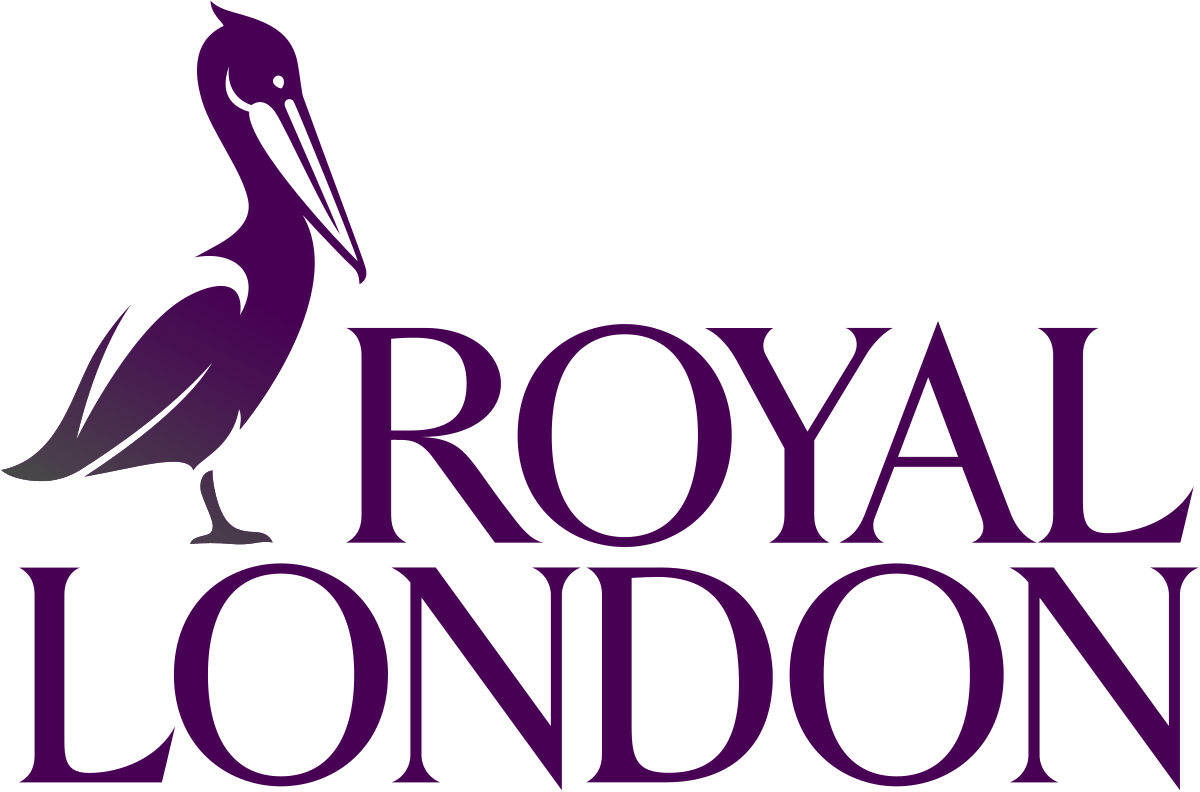What Is The Best Income Protection Insurance In The UK?
Make sure you can pay your bills if you are no longer able to show up at work because of illness or injury.
It is estimated that in England, one million people each year are not able to show up at work because of illness or injury.
You are sick or you are not longer able to work after medical diagnosis, and you'd like to get your salary covered no matter what the cause? You are in the right place.
In this guide, you can compare the best income protection insurances in the UK and find out everything you need to know about salary protection insurance: cover features, terms, prices, tips and much more.
What is income protection insurance?
Income protection insurance, also known as loss of earnings insurance or salary protection insurance, is an insurance that covers you if you are no longer able to work because of injury or illness.
You will basically receive your salary even if you don't show up at work.
Key take-away about salary protection insurance
- Income protection insurance covers a guaranteed income if you are not able to show up at work because you are injured or sick
- Most medical conditions are covered whether they imply short-term or long term recovery
- You will receive payment until you retire or go back to work
- There is no claim limit on salary protection insurance as long as the policy remains valid
- Income protection cover doesn't start immediately. People usually set up the first payment date after employer's sick pay ends.
What is the difference between income protection and critical illness cover?
Critical illness will pay you out a lump sum in case you are diagnosed with a critical medical condition as stated in your policy schedule. You will continue to get this amount until you are no longer meeting the illness criteria defined in your schedule (until you fully recover from your critical condition basically). Meanwhile, you can go back to work and get your pay slips, that will not affect the payment you will receive from your insurer.
Income protection will pay you - not a lump sum - but a guaranteed percentage of your gross income up to a certain limit as long as you are not able to go to work, and for the period defined in the policy schedule (that can be 6 months, 2 years, until retirement etc.).
You are more likely to actually claim on your sick pay insurance as you may, one day or another, need to recover for something which is not critical. However, the total pay out of critical illness cover is usually much higher in the end. So is the premium.
What are the best income protection insurance?
Legal & General income protection
Legal & General income protection covers up to 60% of your pre-taxed salary and up to a total limit of £200,000 per year. The company honored in 2018 96% of claims. At Legal and General, you can choose between a deferred period of 4, 13, 26 or 52 weeks after you've been diagnosed with an illness or injured. You can not get income protection cover if you are aged above 60.
If you die whilst the income protection plan is still on, you may be entitled to receive for your family up to 12 times the monthly payment you decided, in one shot.
Aviva income protection
Aviva protects you up to £240K per year and you can get covered before you turn 60. The company has the most flexible deferred period scheme with a choice going from 1 month to 104 weeks (2 years). You can get fix or variable benefits based on the inflation and you will have access to an Aviva financial expert.
With Aviva, if you choose to go back to work at a lower position because of incapacity or illness that oblige you to reduce your job expectancy, you will get help to cover the bridge between new and previous salary.
The Exeter income protection
The Exeter is among the only insurers in the UK providing sick pay insurance for people working in high risk categories (Pure Protection Plus) as well as for office workers. The company covers you up to 60% of your pre-taxed income up to £100K, as well as 40% of any additional income you may have without any limit set. You can choose from 1 day deferral to 52 weeks.
You will have the choice between 2 age-banded covers, one with guaranteed premiums and the other with reviewable ones. You can also increase your benefit if your marital situation changes, if you get a baby etc. People under 42 years old do not need to show any medical screening. If you go back to work in lower position with lower earnings, The Exeter will also cover the bridge with Back to Work benefits.
Vitality income protection
The Vitality income protection comprehensive plan is rated 5 stars by Defaqto and has excellent customers reviews on Trustpilot. The company covers you for 60% of your gross salary up to £5,000 per month, and 50% beyond up to £200K per year. Vitality paid 96.4% of claims in 2019. You can also get up to £100 per year if you need to stay at the hospital.
Royal London income protection
Royal London covers 65% of pre-taxed salary until £15,000 and 55% afterwards, up to £250K. You will get Back to Work benefit as well as emotional and practical expert support. You will be able to get as optional extra the Excess Waiver. You will also have access to financial expert advice. You must be aged of 59 or younger to get income protection at Royal London.
You can also take out the Fracture Cover and receive an additional payment from £1,500 to £4,000 on top of what you will be receiving as a guaranteed income, in case you have specific fracture somewhere, as stated in your policy schedule.
LV income protection
Liverpool Victoria is known to honor claim payouts. In 2018 the company has paid more than 95% of income protection claims to its customers.
Among key benefits, Liverpool Victoria offers:
- fracture cover with a lump sum payment up to £2,200 depending on the fracture
- a death benefit of £5,000 to £10,000 if you pass away
- back to work benefit
- rehab services to help you recover promptly etc.
Do you need income protection?
No one can say what life throws at us. As already mentioned, one million people in the UK each year are not able to show up at work because of unpredicted injury or illness which may leave them, in the long run, out of jobs and earnings. According to the consumer expert website Which?, income protection insurance is THE insurance policy plan everyone should consider getting.
Indeed, each fully employed Uk resident will be entitled to get 26 weeks of Statutory Sick Pay paid by their employer for a minimum of £95.85 per week (£2,482.10 for the 26 weeks in total). Most insurers do pay more though.
Whether you are living on your own or you have dependent children and a spouse, if getting ill means that you will not be able to pay your housing bills (for instance if you won't receive any sick pay), then you should definitely consider getting salary protection insurance.
Injury insurance is very useful for some profiles such as:
- people who can not get sick pay (self-employed or unemployed people for instance)
- people who can not benefit (or not enough to survive) from government allowances
- people who has not been able to save enough not to be left out of pocket in case of an absence of earnings for a short or long term period
- people not eligible for retirement or early retirement when protection is needed
- people living alone, not having other sources of earnings such as spouse's income or income coming from rents.
What types of income protection to take?
There are different types of income protection insurance that you can take depending on your needs.
| Income protection insurance types | Explanation |
|---|---|
| Accident and Sickness insurance | Any accident or sickness as stated in policy schedule except pre-existing medical conditions. |
| Accident, Sickness and Unemployment insurance | Any accident and sickness as stated in policy schedule and redundancy. |
| Unemployment insurance | Income protection cover if you are made redundant (not if you are getting fired). |
Once you've decided which salary protection insurance type to opt for, you can choose different payment options and policy terms.
- Short term income protection: you are covered for a defined period of time (usually between 6 months and 2 years), already mentioned in the policy terms. You can get covered for as short as one week out of work.
- Long term policies - long-term sickness insurance - which cover you until you retire or go back at work. In the worst case scenario, it covers you until you die.
What are the different premiums types for income protection insurance?
When taking out salary protection, you will have the choice between different payment options and premiums types:
- Guaranteed income protection insurance premiums. It means you pay a fixed monthly premium and you will receive a guaranteed income at the date stated in your contract. It is safe and reliable.
- Reviewable salary protection premiums, meaning that you can change your policy terms, and the income you'd like to get after a certain period of time. It is more expensive than the above plan as insurers need to take into account the fact that you may rise the wanted income after a while.
- Age-banded covers. You will need to pay more as you are getting older but what you do, your medical record and your smoking habits do not impact your premium on the other hand. Those income insurance plans tend to be cheaper at the start. The premium can not go up a certain amount fixed in the contract though. Those policies are used for high risk job categories for instance.
What does income protection cover?
Income protection is a highly comprehensive type of cover protecting you for any loss of earnings due to sickness or injury.
Does income protection cover a job loss?
Yes. If you take our Unemployment income protection insurance plan and you are made redundant. You won't get protection if you are getting fired.
Does salary protection cover death?
Yes. If you take out long-term income protection insurance, it will cover your loss of earnings until you die. However, if you are looking for a policy paying out a lump sum after your death, you should then consider life insurance to protect your relatives.
What does income protection insurance not cover?
Income protection insurance plans are usually comprehensive covers including most injuries and illnesses. However, as for any insurance product, income protection also comes with some standard exclusions such as any injury or sickness due to:
- criminal activities or acts of war;
- illicit drugs consumption or abuse of alcohol;
- attempted suicide;
- pregnancy and childbirth;
- pre-existing medical conditions (unless you've paid additional premium and it is stated in policy terms).
You may also not be covered for injuries made as result of travel in countries under FCO ban (terrorism, pandemic etc.).
Good to know
Depending on the income insurance you choose, you may not be covered for some unemployment reasons - for instance, if you are unemployed because this is the end of a seasonal activity (ski station etc.)
How does our income protection calculator work?
Our income protection calculator works as follows:
- you must select the type of income protection insurance you opt for between accident & sickness, unemployment or both;
- you must enter your annual gross income;
- finally we will ask you to enter your age.
Finally compare quotes, maximum entry age, cover features and reviews of each income protection insurer in the UK.
How much is income protection insurance in the UK?
The table below gives indicative income protection insurance premium based on a set of criteria.
| Salary protection for an office position | 20 years old | 35 years old | 45 years old |
|---|---|---|---|
| £500 income protection per month | £9.76 | £11.06 | £31.06 |
| £1,000 income protection per month | £16.54 | £19.78 | £54.78 |
| £1,500 income protection per month | £28.73 | £39.43 | £65.43 |
*Prices giver are for a non-smoker UK resident working in a firm as a consultant and who'd like to get additional income on top of sick pay for a long term period with a short deferred period of a month.
| Salary protection for an office position | 20 years old | 35 years old | 45 years old |
|---|---|---|---|
| £500 income protection per month | £14.61 | £22.65 | £39.76 |
| £1,000 income protection per month | £23.54 | £32.41 | £61.27 |
| £1,500 income protection per month | £37.22 | £51.23 | £97.34 |
*Prices giver are for a non-smoker UK resident working as a plomber, for a long term period with a short deferred period of a month.
What will affect the price of my salary protection premium?
As any other insurance product in the UK, your income protection insurance premium will widely vary depending on a set of criteria including:
- your age
- your position
- your medical record
- your smoking habits
- the cover you choose
- the type of premium you choose
- the number of accidents or/and illnesses covered in policy terms
- the date you'd like to first payment to be made in case you are injured or sick (known as deferral period)
- the claims period chosen (one week or until retirement for instance)
- the guaranteed income you'd like to receive.
How can I find the best loss of earnings insurance?
Nothing simpler. Use our comparison tool above and read our reviews to exactly know what is included in each income protection provider's plan. Compare features, reviews and quotes and make your choice.
How can I get income protection for self-employed?
You can, of course, get self-employed income protection insurance and you actually definitely should as you won't get any sick pay from an employer!
However, as self-employed positions do not usually guarantee fixed income, you will need to provide a full accounting period to prove your earnings. Your insurer will use those documents to calculate your premium.
Good to know
Self-employed people can not get sickness benefit such as statutory sick pay and must balance this risk by taking out the appropriate loss of earnings cover or by saving!
Can I get full income protection?
Most income protection plans cover you for of a certain percentage of your annual gross income and up to a certain limit.
Insurers allowing you to claim for 100% of your pre-taxed income will still set a threshold in pounds. For instance, you will be able to get 100% of your gross income up to £200,000 per year.
However, insurers covering your full income are rare and most policies available today offers protection for 60% of your total income.
What are the alternatives to income protection insurance?
Other financial insurance plans can cover you in case something bad happens in your life.
- Critical illness insurance is an extra that can be added to your policy, or can be combined with your standard life insurance. It pays out a tax-free lump sum if you contract a disease. The illness developed must be specified in your policy contract. Critical illness is defined as an illness that is curable; this is different from terminal illness, where the life expectancy is really low (not more than one year). Terminal illness is usually covered by life insurance.
- Life insurance is an insurance that will pay out to your family if you die. It’s intended to make sure that your family won’t be financially ruined if anything happens to you. It can also pay out to make sure that a mortgage or other debt is covered – so even if you don’t have a family, your mortgage lender might ask you to take out a policy.
Good to know
Critical illness and life insurance are not, in any way, insurance substitutes of income protection plan. Getting both life insurance with critical illness as well as income protection plan is even the best option to get covered no matter what happens.
Top tips when taking out income protection
- Talk to an adviser to shape your sick pay insurance exactly the way you need it.
- Choose the right deferral period. You must not be left out of pocket no matter how long you need to be off work.
- Combine your income protection with critical illness cover to be protected no matter what.
- Do not forget that payments you receive from income protection insurance are tax-deductible.





